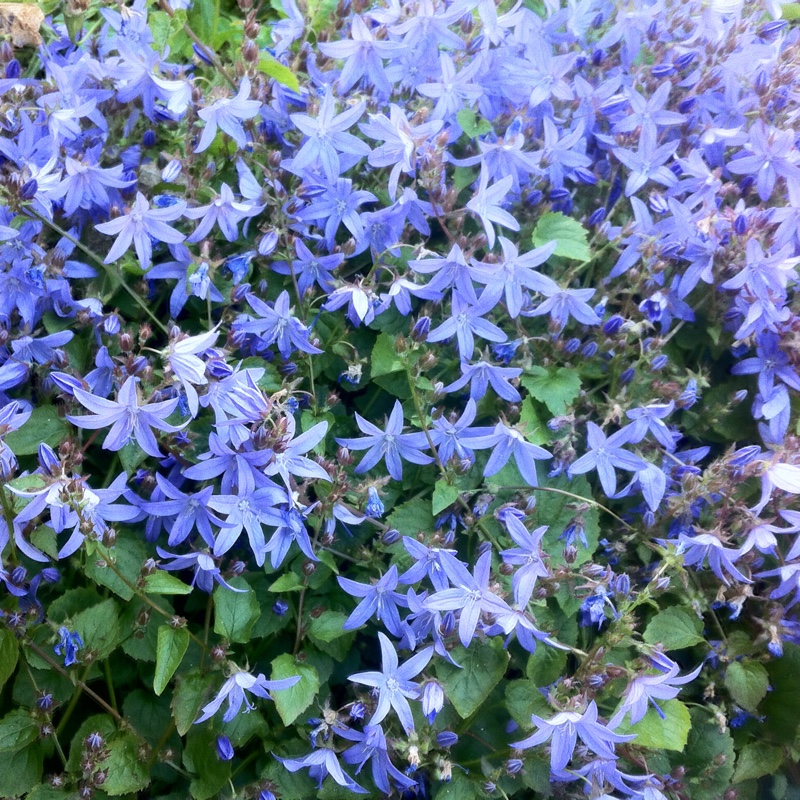
Campanula isophylla
Falling stars
A compact hardy perennial suitable for being growning in pots and planters, as well as in window boxes, hanging basket and pots. Will flower from mid to late summer. This is a strong hardy perennial that will flower again next year. C. isophylla is a small camanula with trailing stems and heart-shaped leaves with light-blue flowers in summer.
Contributed by @22pilgrim
-
Full sun
-
Occasional watering
-
Frost Hardy: 23F (-5°C)
-
Moist and free draining
Common name
Falling stars
Latin name
Campanula isophylla
type
Hardy Perennial
family
Campanulaceae
ph
5.0 - 8.5 Acid - Neutral
Plant & bloom calendar
-
Best time to plant
-
When the plant will bloom
full grown dimensions
 1.00 M
0.10 M
1.00 M
0.10 M
Campanula isophylla
A compact hardy perennial suitable for being growning in pots and planters, as well as in window boxes, hanging basket and pots. Will flower from mid to late summer. This is a strong hardy perennial that will flower again next year. C. isophylla is a small camanula with trailing stems and heart-shaped leaves with light-blue flowers in summer.
Planting
From Early Spring TO Mid Spring
Plant bellflowers in full sunlight and cut back tall plants or move large structures that create shaded conditions around them. Lay a 2 to 3 inch layer of organic mulch, such as straw or pine needles, to the soil surrounding the campanula and some into the planting hole beneath the root ball; do not press it directly against the plant's stem. Campanula plants grow well without mulch, but it helps soil retain water and deters weeds.
Propagation by seed
From Mid Spring TO Late Spring
Campanula can grow from seed or from rhizomes. The tiny seeds should go in prepared soil in spring after all danger of frost has passed. Make sure to keep seedlings moderately moist when caring for bellflowers. To plant rhizomes, sever them from the parent plant at a root node and bury the roots in the soil.
Flowering
From Early Summer TO Early Autumn
Bellflowers will bloom heaviest in early to mid-summer but can delight you with flowers all the way into Autumn in some areas.











